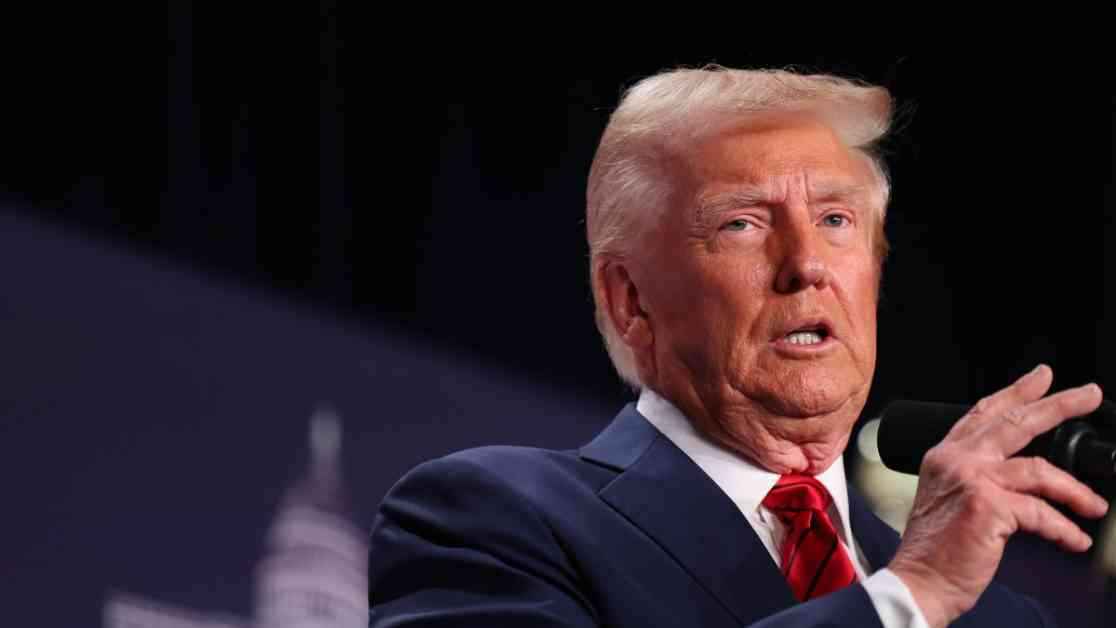Trump Administration Freezes Federal Aid to Advance Conservative Agenda
In a bold move that has sent shockwaves across the nation, President Donald Trump has issued a directive to halt all domestic and foreign federal aid in an effort to prioritize his conservative agenda. This sweeping decision, outlined in a memo from Matthew J. Vaeth, acting director of the White House Office of Management and Budget, is a significant departure from the policies of the previous administration. The memo, obtained by NBC News, states that the freeze will take effect on Tuesday at 5 p.m. ET, affecting an array of federal financial assistance programs.
A New Direction for Federal Aid
The memo issued by Vaeth calls for federal agencies to pause all activities related to the disbursement of federal aid, citing a need to align government funding with Trump’s policy objectives. This includes a wide range of initiatives, from foreign aid to nongovernmental organizations, diversity, equity, and inclusion (DEI) efforts, woke gender ideology, and the green new deal. The directive is aimed at allowing agencies time to evaluate current programs and reallocate funding in accordance with the law and the President’s priorities.
While the memo does not specify the exact programs or groups that will be impacted by the freeze, it is expected to affect billions of dollars in aid. However, certain essential programs like Social Security, Medicare, and direct payments to individuals will remain unaffected. The memo stresses the importance of agencies identifying any legally mandated actions or deadlines that may arise during the pause, signaling a significant shift in federal funding priorities.
A Wave of Criticism
Trump’s decision to freeze federal aid has drawn immediate criticism from Democratic leaders in Congress, who argue that the move undermines the authority of the legislative branch. Rep. Rosa DeLauro and Sen. Patty Murray, the Democratic heads of the House and Senate appropriations committees, expressed “extreme alarm” over the Administration’s effort to bypass Congress and redirect vital resources. They deemed the scope of the freeze as unprecedented and potentially devastating for communities across the country.
Senate Democratic Leader Chuck Schumer echoed these sentiments, denouncing the freeze as an act of lawlessness that threatens essential programs nationwide. He warned that if the freeze continues, the American people will suffer the consequences. Illinois Governor J.B. Pritzker also condemned the move as unconstitutional, vowing to protect working families, children, and seniors in his state from any harmful effects.
Expert Insights and Reactions
Experts and analysts have raised concerns about the broader implications of Trump’s decision to halt federal aid. Many view it as a deliberate effort to reshape government priorities and redirect funding away from progressive causes. The move comes on the heels of a series of executive orders signed by Trump that seek to reverse key policies implemented by the Biden administration.
Speaking at a gathering of House Republicans in Miami, Trump defended his administration’s actions as a necessary step to undo the damage caused by his predecessor. The President expressed a sense of urgency in rolling back what he described as the disasters of the Biden administration, signaling a clear shift in federal policy.
Looking Ahead
As the freeze on federal aid takes effect, the nation remains divided on the implications of Trump’s decision. While some view it as a necessary realignment of government priorities, others see it as an overreach of executive power that undermines the role of Congress. The coming days and weeks are likely to see increased scrutiny and debate over the impact of the freeze on vital programs and services nationwide.
In conclusion, Trump’s directive to halt federal aid marks a significant turning point in the administration’s policy agenda, with far-reaching consequences for communities across the country. The decision has sparked a fierce backlash from critics who argue that it threatens the fundamental principles of government accountability and oversight. As the nation grapples with the fallout from this unprecedented move, the future of federal funding and assistance hangs in the balance.


